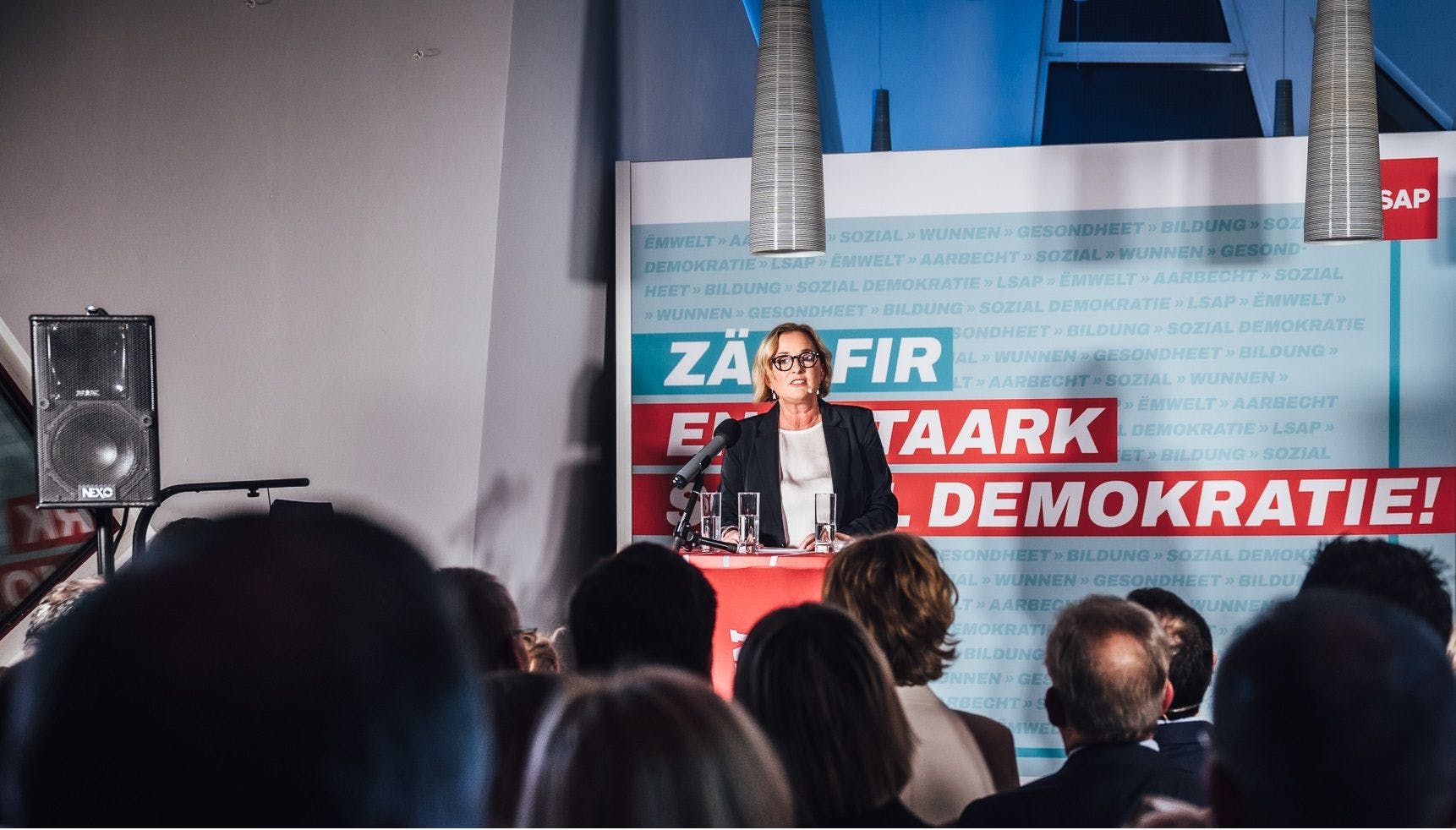
Luxembourg Socialist Workers' Party in Luxembourg — Lëtzebuerger Sozialistesch Aarbechterpartei (LSAP)
In this article, we delve deeper into the LSAP's structure and representativeness, explore the key figures in its leadership and influential members, examine its current political stance, and trace the roots of the party, enduring legacy within Luxembourg's political arena.
With its roots firmly grounded in social democracy, the LSAP has developed a robust reputation as the party of the working class. This strong working-class identity has significantly contributed to its electoral success, especially in the southern region of Luxembourg, where it exerts considerable influence.
LSAP party at a glance
The Luxembourg Socialist Workers' Party, commonly referred to as LSAP, stands as a prominent social-democratic force within Luxembourg's political landscape. LSAP champions a pro-European agenda, emphasizing the importance of collaboration and unity within the European Union. The party is under the dual leadership of Francine Closener and Dan Biancalana, who guide its strategic direction and policies.
At present, the LSAP holds the distinction of being the second-largest party in the Chamber of Deputies, taking 11 seats in the Chamber. The number of seats a party holds can influence the policy direction and government formation.
This positioning has enabled the LSAP to play a pivotal role in the Bettel government II, with Paulette Lenert, an LSAP prominent member, serving as Deputy Prime Minister.
Political Guide

Structure and representativeness
In 2023, the Luxembourg LSAP counted 4,510 members, thus being the second largest party underscoring its status as a significant political force within Luxembourg. Since March 2022 the party has been under the dual leadership of Francine Closener and Dan Biancalana.
The inner life of a party
At its core, the LSAP operates through a hierarchical framework comprising several committees.






Electoral system divides the country into four constituencies. The number of seats allocated to each constituency is proportional to its population
People and influence in the party
Key personnel profiles
Within the Luxembourg Socialist Workers' Party, numerous individuals hold pivotal positions that shape the party's direction and influence across various domains. The party takes pride in its 6 ministers who represent it in the Luxembourg government.
Leaders of the party


Ministers from the party




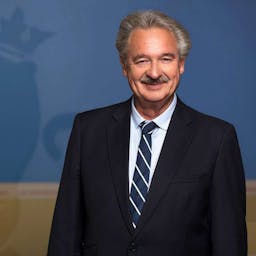

Other key members of the party




The LSAP is one of the largest parties in the Chamber of Deputies, behind the CSV. In the 2023 legislative elections, the party secured 18.9% of the popular vote, solidifying its role as a major political force in the country. The party took 11 seats in the last election, thereby losing three seats.
At the European level, the LSAP secured one of Luxembourg's six seats in the European Parliament following the 2019 European elections. This seat is occupied by Marc Angel, who represents the party's interests on the European stage. Earlier this year, he was elected Vice President of the European Parliament.
These seats are divided among member countries based on their population size.
LSAP's current political stance
The party is firmly positioned on the center-left of the political spectrum. As a social-democratic oriented fraction, the Luxembourg Socialist Workers' Party is guided by 4 core values that shape its political agenda and actions within the government: freedom, fairness, solidarity and security.
The party and its cornerstones
In 2013, LSAP left the partnership. After the elections in 2013, LSAP became part of a new government with the Democratic Party and The Greens. Xavier Bettel from the Democratic Party became the Prime Minister, and Etienne Schneider from LSAP was the Deputy Prime Minister before Paulette Lenert.
Party views visualization
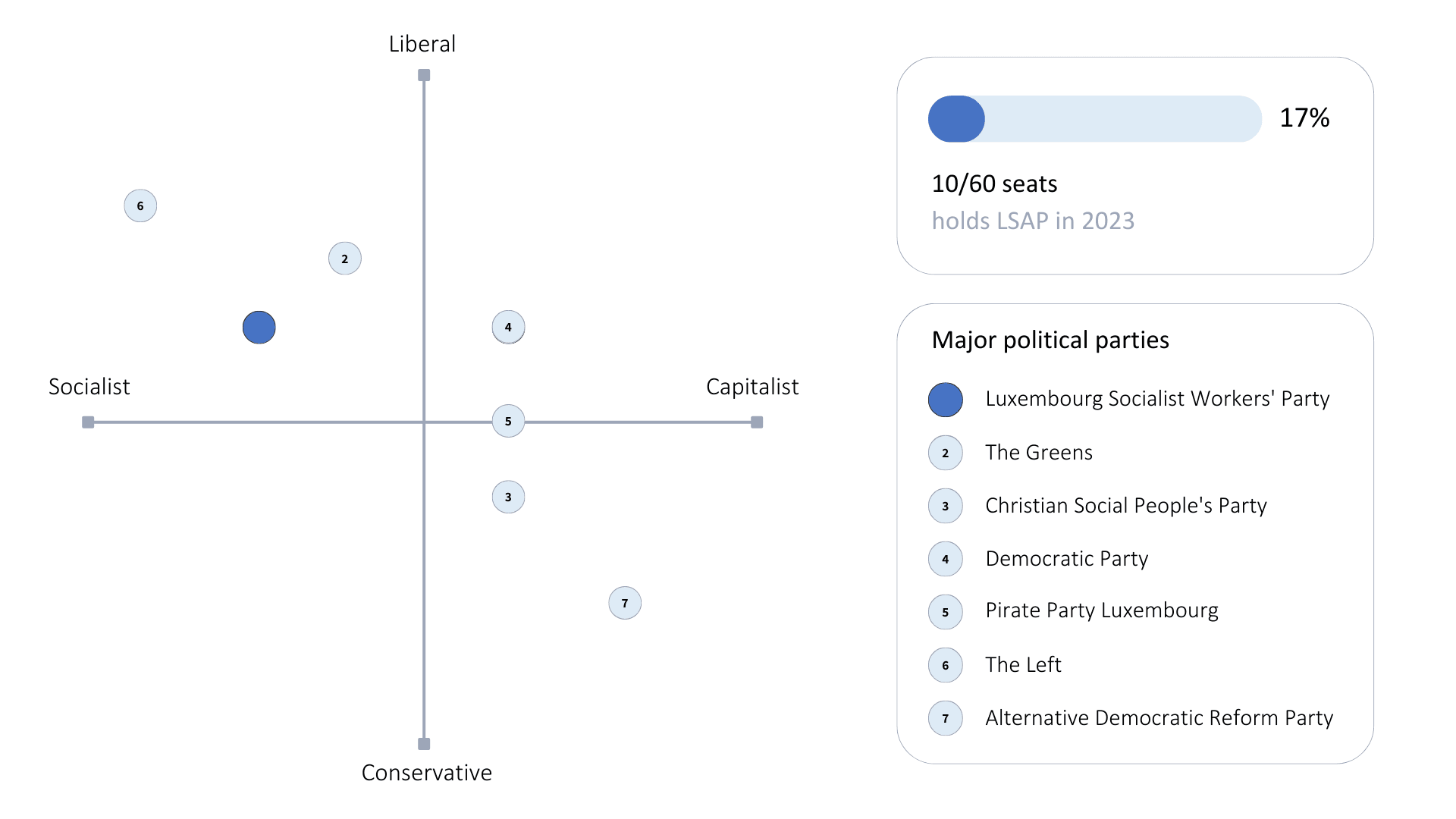
LSAP reflects a commitment to social democracy with a focus on fairness, social security, environmental sustainability and education. Its policies aim to meet the diverse needs of Luxembourg's population and create a society that provides opportunities and support for all citizens.




Political program
You can download the LSAP program on their website. We present here a condensed summary of the key aspects of their agenda for the upcoming elections.
The LSAP advocates for a 38-hour workweek and the introduction of a 6-week vacation for the private sector. They emphasize that their values do not align with outdated economic policies that harm the environment or opportunistic liberalism benefiting the privileged. In the LSAP's vision, the economy serves society as a whole, ensuring well-being for everyone, not just those born into prosperity. Party aims to raise the minimum wage by at least 100 euros.
The party's program includes a tax reform. The goal is to adjust the tax scale and balance taxation between capital and labor. There are 18 measures proposed to reduce the tax burden on low and middle income earners. Special attention is given to single-parent families, who would receive increased financial support. Young people would benefit from a tax credit of 200 euros during their first five years of employment.
Recognizing the imperative of an ecological transition, the LSAP underscores the importance of a socially and equitably oriented environmental policy. They emphasize the need to avoid new injustices in the pursuit of environmental goals. To this end, they plan to draft a new environmental protection law with clearer rules and fewer prohibitions.
The LSAP calls for a significant increase in housing construction efforts, advocating for a substantial number of publicly owned properties. It aims to ensure that 25-30% of rental housing is publicly managed and hence affordable. The party firmly opposes the liberalization of the real estate sector, emphasizing the need for market regulation.
Party representation
The Luxembourg Socialist Workers' Party has garnered a strong reputation as a champion of working-class interests. While not formally affiliated, the party maintains close ties with the Independent Trade Union Confederation of Luxembourg (OGB-L), the nation's largest trade union.
Electorate demographics
The LSAP's stronghold lies notably in the southern region, encompassing the Terres Rouges, which represents the country's industrial heartland and historical mining district.
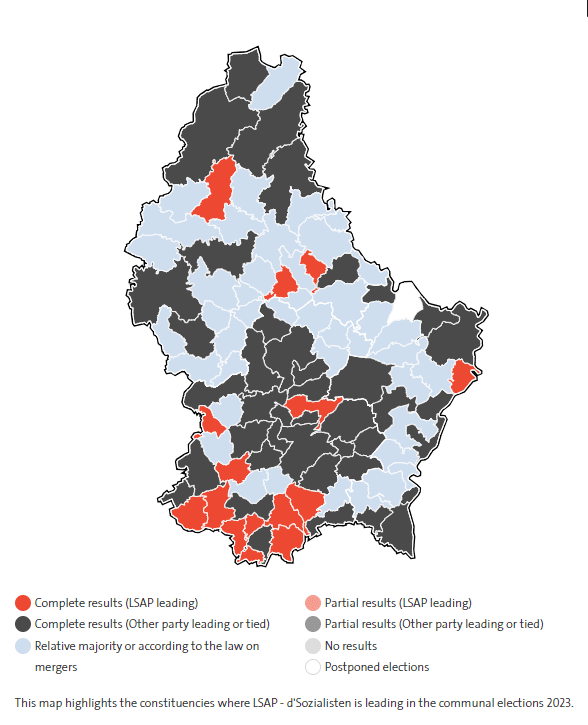
This geographical pattern underscores the party's commitment to representing the interests of the working class, particularly within this industrial and mining heartland.
| LSAP | DP | CSV | Greens | |
| Environment | Low | Middle | Low | High |
| Electorate | Older | Young | Older | Young |
| Trade unions | Yes | No | Yes | Yes |
| Secularism | Yes | Yes | No | Yes |
LSAP office is located in Luxembourg City
- Office location: 68, de Gasperich L-1617 Luxembourg
- Official website: LSAP.lu
- Phone number: (+352) 4 56 57 31
Brief history of the party
The Luxembourg Socialist Workers' Party is one of the oldest parties in the country. Since its foundation in 1902, it has been a popular choice among voters and has helped shape the country's modern politics.
Foundation of the LSAP: 1902-1959
- Founded in 1902, the Luxembourg Socialist Workers' Party (LSAP) evolved into its current form, the "Lëtzebuerger Sozialistesch Arbechterpartei," in 1945.
- In 1951, the LSAP entered the Luxembourg government in coalition with the CSV, marking its second government participation (the first being in 1937 as the "Parti social-démocrate"). The LSAP remained in the government as a coalition partner until 1959.
Continued coalition, challenges and return: 1964-1983
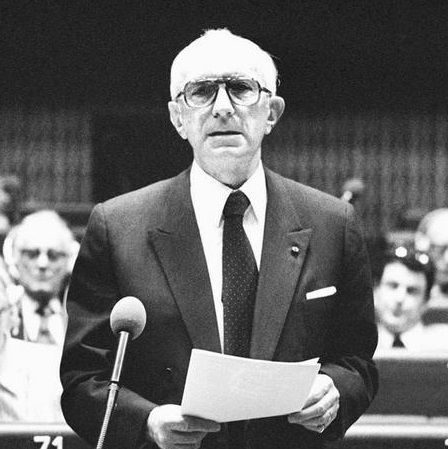
- The LSAP returned to government in 1964, with Henry Cravatte serving as Vice Prime Minister. While the LSAP has never held the position of Prime Minister, it has consistently acted as a coalition partner alongside DP and CSV in most government formations since 1951.
- After losing the 1969 elections, internal debates emerged within the LSAP regarding its future, including whether to engage in coalitions with CSV or the Communist Party at the local level.
- In 1970, internal turmoil led to the departure of party president Henry Cravatte and approximately 15% of members, forming a second Luxembourgish social-democratic party, the "Sozialdemokratesch Partei," which existed until 1983. Henry Cravatte eventually returned to the LSAP.
Ongoing government participation: 1984 to present
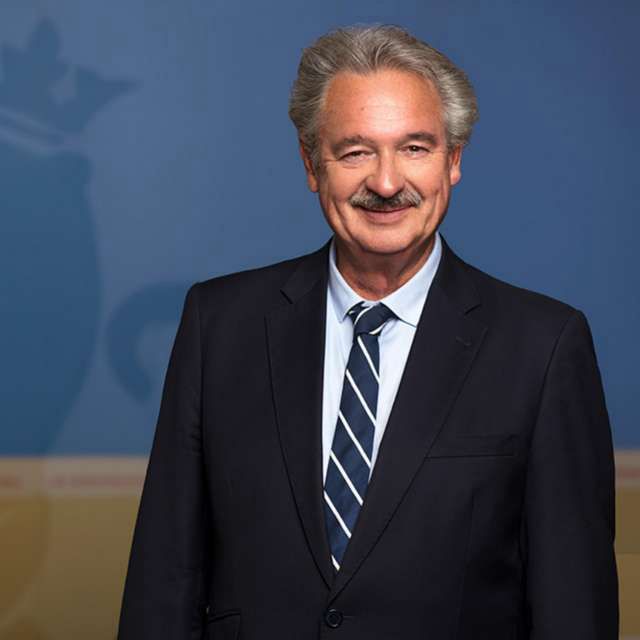
- Since 1984, except for the period from 1999 to 2004, the LSAP has been part of the Luxembourg government under Prime Ministers Jacques Santer and Jean-Claude Juncker, with Vice Prime Ministers Jacques Poos and Jean Asselborn.
- Starting in 1999, the LSAP has been represented in nearly all municipal councils, except for Kopstal. The party secured 139 seats in 1999 and 165 seats in 2005. After winning a total of 211 seats across 116 Luxembourgish municipalities in 2005, the LSAP placed 16 mayors in the councils of "Proporz-Gemengen" and ten more in other municipalities.
Frequently Asked Questions (FAQ)
Where does the LSAP stand on the political spectrum?
Who are the current leaders of the LSAP?
As of the most recent information available, Francine Closener and Dan Biancalana serve as the co-presidents of the LSAP. They jointly lead the party, guiding its political direction and strategy.
What are the core values and principles of the LSAP?
The LSAP's core values include freedom, fairness, solidarity, and security. The party emphasizes individual liberties, social equity, support for the vulnerable, and ensuring the well-being and safety of all citizens. These principles underpin the LSAP's policy positions and actions.
Has the LSAP ever held the position of Prime Minister in Luxembourg?
No, the LSAP has never held the position of Prime Minister in Luxembourg. While it has been a prominent coalition partner in numerous governments, it has typically occupied key ministerial positions and played a vital role in shaping policies, but the office of Prime Minister has been held by other political parties.
Source: lsap.lu, fr.wikipedia.org, zpb.lu
We took photos from these sources: LSAP website; Gouvernement.lu, author Yves Kortum; LSAP Facebook official page; Wikimedia